1. Personal Space on Public Transport
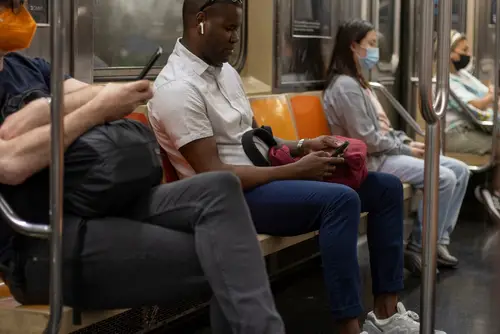
Americans tend to value personal space, especially on buses or subways. Standing too close to someone can make them uncomfortable, even if it seems normal in other countries. Outsiders might crowd passengers without realizing it, which can create tension or awkward stares. Respecting these invisible boundaries is more than etiquette—it’s a cultural expectation.
People often leave an empty seat between themselves and strangers when possible. Even subtle gestures, like leaning or brushing against someone, can feel invasive. Understanding personal space helps you navigate crowded places without unintentionally upsetting anyone. It’s all about keeping interactions polite and comfortable for everyone.
2. Tipping in Restaurants

In the U.S., tipping at restaurants isn’t just polite—it’s expected. Many locals rely on tips as a significant portion of their income, so leaving nothing or too little can come across as rude. Outsiders sometimes don’t realize that a 15–20% tip is standard, which can create awkward situations. It’s less about flaunting generosity and more about following social norms that ensure fair wages.
Some travelers think service is included in the bill like in other countries, but in most American restaurants, it isn’t. Ignoring tipping can leave staff frustrated or embarrassed. Even if the service isn’t stellar, Americans often still tip, which reflects a cultural emphasis on fairness. Understanding this custom prevents unintended offense and shows respect for the staff’s hard work.
3. Driving Etiquette
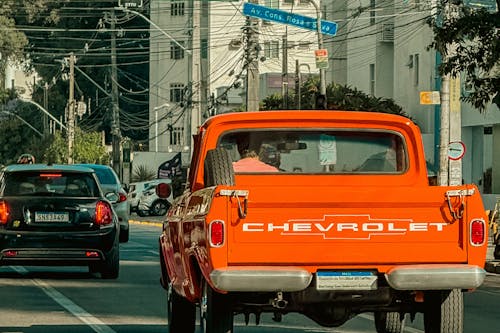
In many parts of America, the rules of the road extend beyond written laws—they include unwritten etiquette. For example, not using a turn signal or cutting someone off is considered a serious faux pas. Visitors sometimes underestimate how strictly locals follow these informal rules. A simple gesture like letting someone merge politely can prevent road rage and show respect.
Another common annoyance is failing to move over for emergency vehicles. Americans take it very seriously, and ignoring this can result in both legal trouble and social judgment. It’s not just about avoiding fines—it’s about being part of a shared driving culture. Observing these subtleties ensures you don’t unintentionally irritate locals.
4. Asking “How Are You?”

The phrase “How are you?” is often just a casual greeting in America, not a literal question. Outsiders sometimes launch into detailed health updates or personal stories, which can catch people off guard. Locals usually expect a brief “Good, thanks” or “Fine, how about you?” Responding too earnestly can make social interactions awkward without meaning to.
It’s a shorthand for friendliness, not an invitation to discuss your entire week. Learning this nuance helps visitors avoid over-explaining themselves. People are often surprised by how perfunctory Americans can be with small talk. It’s one of those subtle ways the culture prioritizes efficiency and politeness.
5. Standing in Line
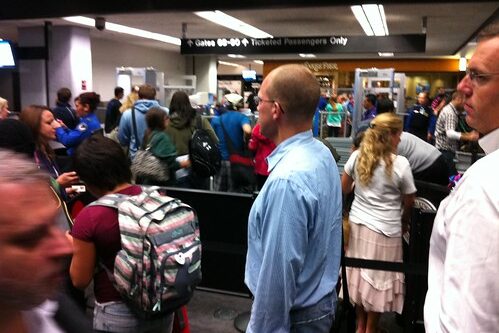
Queuing is serious business in the U.S., and skipping ahead is a fast way to upset people. Lines are treated as sacred, and breaking the order can spark confrontation. Tourists sometimes misinterpret casual line gaps as opportunities to jump ahead. Being patient and waiting your turn signals respect for others’ time.
Even minor deviations, like cutting in at the grocery store, can feel disrespectful. Americans see lines as a fair system where everyone gets equal treatment. Following this rule prevents embarrassment and maintains harmony in public spaces. Observing lines carefully is a simple but important cultural practice.
6. Using First Names

Americans are unusually casual with names, often addressing colleagues or acquaintances by first names right away. Outsiders used to formal titles may hesitate, thinking it’s disrespectful. In reality, insisting on formal address can make interactions feel stiff or overly distant. Adopting the first-name approach shows that you’re comfortable with local norms.
However, there are exceptions in professional or academic settings where titles like “Dr.” or “Professor” are still respected. Observing cues from the person you’re addressing can prevent mistakes. Americans generally prefer warmth over rigid formality. Embracing this can make you seem approachable rather than aloof.
7. Complaining About Weather
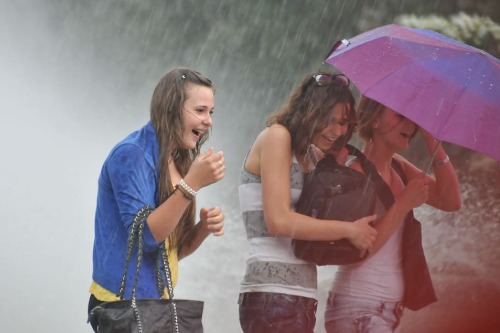
Talking about the weather is a classic small-talk topic in America, and people often bond over shared frustrations or compliments. Outsiders might complain too harshly or dismiss casual comments, which can seem rude. Even trivial remarks like “It’s so hot today” carry social weight. Participating in these brief exchanges shows you’re friendly and culturally aware.
Ignoring weather small talk can make interactions feel cold or awkward. Americans use it as a polite way to connect with strangers. Joining in, even briefly, signals respect for local conversational habits. It’s an easy, low-stakes way to integrate socially.
8. Backyard Barbecues
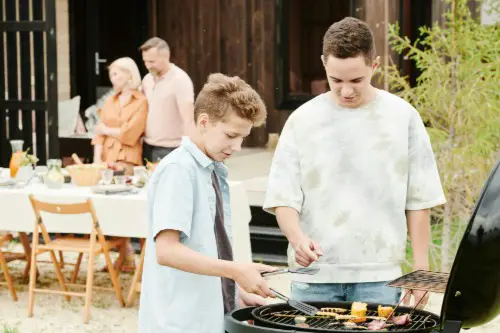
Invitations to backyard barbecues or casual home gatherings are common in many regions. Not accepting or showing enthusiasm for the offer can be interpreted as unfriendly. Outsiders might be unfamiliar with the informal, neighborly culture surrounding these events. Participating—even modestly—signals appreciation for community.
Food is a key part of bonding, and skipping a dish or refusing to try local specialties can feel dismissive. Hosts often take pride in what they prepare. A small effort to engage with the food and conversation goes a long way. It’s more than just etiquette—it’s about joining a local tradition.
9. Holding Doors Open
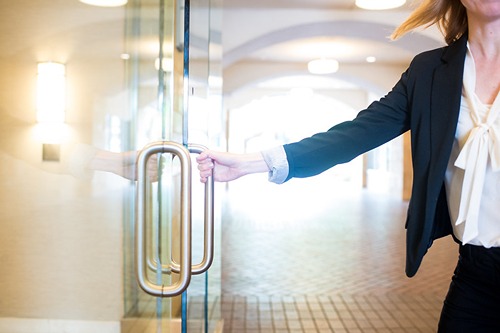
Door-holding is surprisingly ritualized in the U.S., particularly in offices, stores, or public buildings. Letting a door close on someone behind you is often perceived as rude. Outsiders might not anticipate this expectation, assuming doors are purely functional. A simple gesture of courtesy goes a long way in signaling respect.
People notice when someone consistently neglects this custom. It’s considered a sign of politeness rather than a major moral obligation. Holding doors can even become a silent way to demonstrate community-minded behavior. Ignoring it can unintentionally give the impression of indifference.
10. Bringing Gifts to a Host

When invited to someone’s home, bringing a small gift—like wine, dessert, or flowers—is customary. Refusing or forgetting to bring something can be seen as ungrateful. Outsiders sometimes underestimate the importance of these gestures, thinking casual visits need no preparation. The gift isn’t expensive; it’s symbolic of appreciation.
Even something small shows you recognize the effort a host made. Americans often take hosting seriously, and acknowledging it builds goodwill. Gifts signal politeness and thoughtfulness in a subtle but meaningful way. Overlooking this custom can unintentionally insult someone’s hospitality.
11. Regional Food Preferences
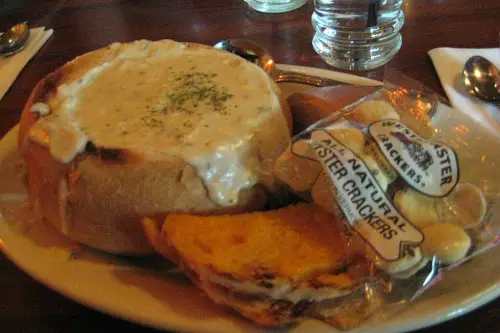
Americans can be surprisingly protective of regional foods, from clam chowder in New England to barbecue in the South. Criticizing or dismissing a local specialty may be taken personally. Outsiders might not realize that food is part of local identity and pride. Being open-minded about local dishes shows respect for culture.
Even casual remarks like “I don’t like this” can trigger unintended offense. Locals often share food as an expression of heritage. Sampling and complimenting regional specialties is both polite and socially savvy. It signals that you’re engaged and willing to embrace local traditions.
12. Queueing at Coffee Shops

Coffee culture is a serious ritual in many American cities, with unwritten rules about waiting your turn and ordering politely. Jumping ahead or loudly complaining can be perceived as aggressive. Visitors may not understand how structured and social these queues can be. Observing the flow and etiquette maintains harmony.
Baristas and customers notice disruptions quickly. People take pride in orderly service and personal interactions. Following these cues shows respect for daily routines and social norms. Coffee line etiquette is a surprisingly telling reflection of American attention to courtesy and fairness.
This post 12 Local Customs That Outsiders Accidentally Insult Without Knowing was first published on American Charm.


